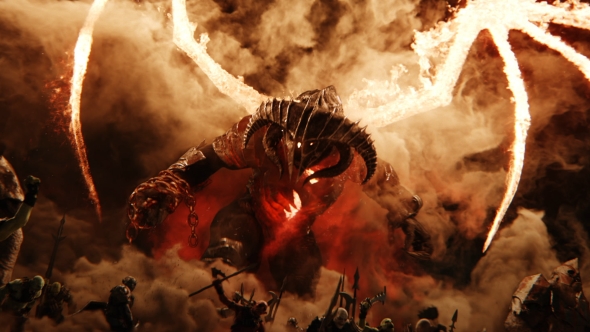Denuvo markets themselves as the “#1 application protection and Anti-Piracy Technology” in the world. Their aim is to “provide the longest crack-free release window compared to competitors,” protecting new games from hacking and piracy during their opening weeks and months, when sales are arguably most important and piracy is likely to have the biggest impact.
A recent EU report concluded that piracy actually increases videogame sales.
A year or two ago, Denuvo delivered on that promise. Their anti-tamper protection was so watertight that piracy groups were abandoning the scene, finding it impossible to crack Just Cause 3 quickly enough to remain relevant. For a while, Denuvo’s Anti-Tamper technology was doing exactly what the company hoped. As Denuvo’s sales and marketing director Thomas Goebl told us last year, that’s not stopping the pirates forever, but “to help publishers to secure the initial sales windows of their games, hence delaying piracy.”
In late 2015 to early 2016, Denuvo were delaying the work of pirates by weeks or months as they tried to get into games like FIFA 15, Dragon Age: Inquisition, and Lords of the Fallen. When Doom was released in May 2016, the anti-tamper technology was eventually removed from the game after it held up for four months, which Denuvo’s co-founder Robert Hernandez told Kotaku was “an impressive accomplishment for such a high-profile game.”
Since that time, however, the amount of time taken to crack a game using Denuvo has been falling. Resident Evil 7 was cracked within seven days of release, and in recent weeks, the time it has taken for Denuvo to be ‘beaten’ has fallen to mere days. On some occasions, workarounds have been available within hours of release; Middle-earth: Shadow of War was available inside 24 hours, as was Total War: Warhammer 2.

Pirates have been able to crack Denuvo so much faster because they have developed a new method of attack. Previously, games were cracked by a process of reverse engineering – reversing an executable, before modifying the game’s code to allow you to bypass, delete, or emulate DRM. Denuvo’s tech made that approach nearly impossible to achieve within a time frame short enough to be worthwhile for piracy groups.
A scene member who goes by the moniker Voksi told us that “[piracy] scene groups have found a way to get past [Denuvo’s] encryption and keygen files in just a day. They do not crack Denuvo, they simply keygen it, so Denuvo thinks nothing is wrong on the pirated version.” What that means is groups have found a means to replicate Denuvo-sanctioned keys for games, which can be churned out within hours of the game’s release, with little opportunity for Denuvo to fight back.

Despite its period of unparalleled success 18 months ago, Denuvo is facing obsolescence if it cannot dramatically change its approach to protection, which is why Ubisoft brought in a second level of protection intended to defend Denuvo itself with Assassin’s Creed Origins. The mod team on the Crackwatch subreddit told us that “we would say that the scene groups have figured out Denuvo and that their incremental patches might only distract them for a few days until they worked around those as well. In that case, unless there’s fundamental change in the way Denuvo works, which is not going to happen anytime soon, given that it took Denuvo months to upgrade from version three to version four, Denuvo protected games will continue to get cracked faster and faster.”
We reached out to Denuvo multiple times for comment on this story, but received no response. We also contacted representatives from Monolith, Bethesda, Creative Assembly, High Voltage, Respawn, Io Interactive, and Neopica, but they either did not respond, or declined to comment.
